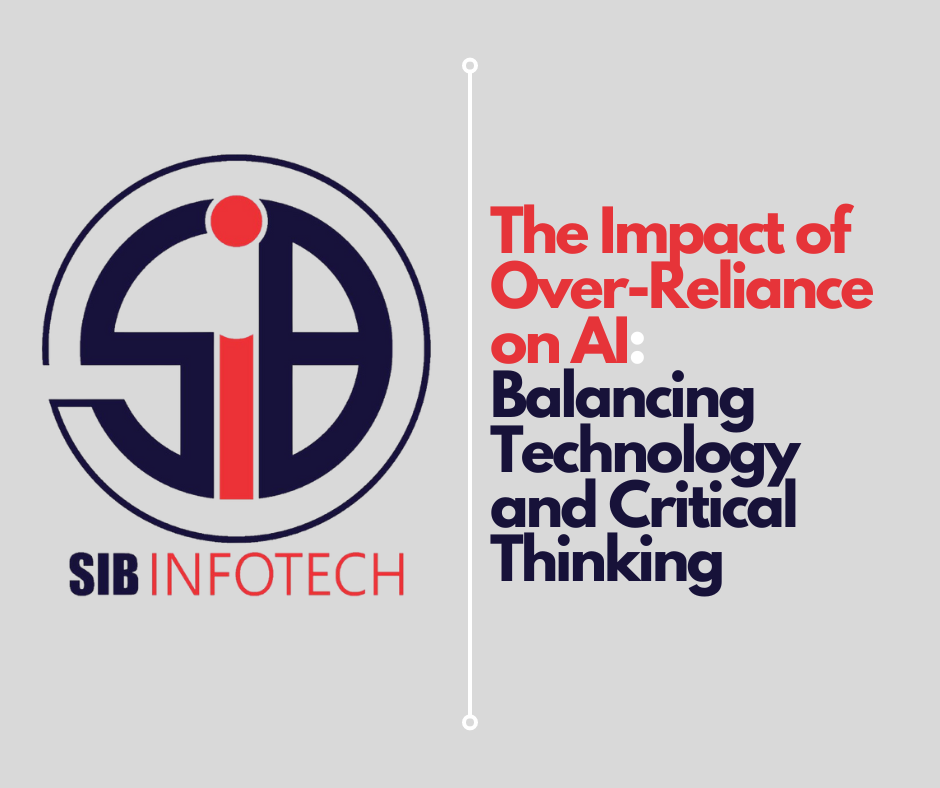In today’s fast-paced digital world, businesses are constantly looking for ways to stay ahead of the curve. From streamlining processes to improving customer experiences, artificial intelligence (AI) has become a key player in shaping modern business strategies. AI can automate repetitive tasks, analyze vast amounts of data, and provide personalized insights, making it an indispensable tool for companies across various industries.
However, as beneficial as AI may be, over-reliance on it can have its drawbacks. It is crucial for businesses to strike a balance between leveraging AI and maintaining strong critical thinking skills within their teams. This balance can help ensure that the technology is being used effectively and ethically.
The Importance of Critical Thinking
While AI can be incredibly powerful, it cannot replace the human mind’s ability to think critically, creatively, and empathetically. Critical thinking enables us to analyze data, question assumptions, and interpret results with a holistic approach. This process helps us avoid making decisions solely based on AI’s recommendations, which can sometimes be flawed or biased.
Human critical thinking allows us to:
Evaluate AI outputs: AI models may produce recommendations based on data that contains biases or errors. Human oversight ensures that these outputs are critically assessed before making decisions.
Identify limitations: AI is only as good as the data it is trained on. Critical thinkers can identify when AI may not be suitable for a particular situation and seek alternative solutions.
Maintain ethical standards: Ethical considerations should always be at the forefront of decision-making. Critical thinking helps us recognize when AI may be crossing ethical boundaries.
Striking the Balance
Finding the right balance between AI and critical thinking can be challenging, but it is essential for businesses aiming to leverage technology effectively. Here are some strategies to achieve this balance:
Educate Your Team: Provide training on AI and critical thinking skills. Encourage your team to stay curious and question AI outputs.
Use AI as a Tool, Not a Solution: AI should be seen as a tool that complements human capabilities, rather than a complete solution. Rely on it for data analysis and pattern recognition, but let your team apply their judgment and expertise.
Incorporate Diverse Perspectives: A diverse team brings different viewpoints and experiences to the table, enhancing the decision-making process and reducing the risk of over-reliance on AI.
Establish Guidelines and Best Practices: Create clear policies on how AI should be used in your organization. Include processes for reviewing and validating AI outputs.
Regularly Assess AI Models: AI models need to be continually evaluated for accuracy, fairness, and relevance. Stay updated on the latest developments in AI and adjust your strategies accordingly.
Conclusion
AI has the potential to revolutionize businesses, but over-reliance on it can lead to missed opportunities and ethical dilemmas. At SIB Infotech, we understand the importance of balancing technology with critical thinking. By encouraging a culture of questioning and creativity, we help our clients harness AI’s power while retaining the human touch in their decision-making processes.
Our commitment to providing state-of-the-art web solutions extends beyond delivering advanced technology. We believe in empowering our clients to use AI effectively and ethically, ensuring they achieve sustainable success in the digital age.
By finding the right balance, businesses can unlock the true potential of AI while maintaining a strong foundation of human insight and critical thinking. Let SIB Infotech guide you through this journey to achieve your digital goals with confidence and integrity.

